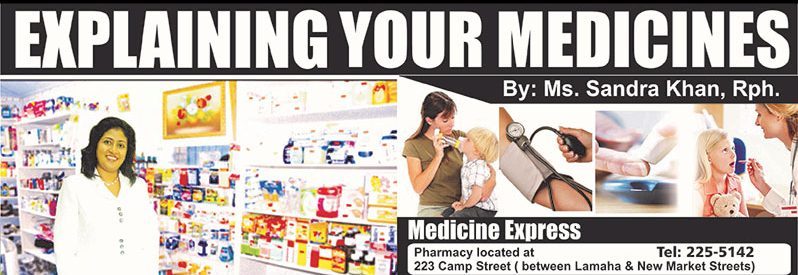PATIENT education and counselling is a value-added service that facilitates healing. It is the responsibility of those healthcare professionals who are interactive with the patient to share authentic information which serves to empower patients so that they may make informed health decisions.
It is reassuring for the patient to know that all qualified and trained doctors and pharmacists are mandated to attend continuing education sessions prior to renewing their registration licences to practise with their respective councils.
Patient education reduces hospital re-admission, maximises clinician efficiency and optimises patient experience. It clarifies patients’ perceptions and changes behaviour about their own health conditions, where the patient is put in the driver’s seat to take responsibility for their choices and actions, enabling positive outcomes.
Education not only encompasses the details of your prescribed treatment, but is also holistic and includes nutrition counselling, preventative measures for non-hereditary diseases and other non-medication interventions such as meditation and exercise.
What good would it be to drink a weight-loss pill but not change your diet, or to take antidiabetic meds, but continue to consume sugar, or to take allergy pills or asthma medication but not identify exposure to the allergens that trigger the condition?
With respect to the prescribed treatments, the universal scientific names of medications (not unknown foreign names) and their strengths must be clearly shared with the patient on a written or electronic prescription prior to dispensing, so that mutual consent is reached on the available branded or generic medications.
Gone are the days when pills are identified by colour or shape, which vary depending on availability of medications by various manufacturers. The patient must be informed of the purpose of the medication, how to take or administer treatment and precautions to be taken. Warnings for anticipated side effects must be cited, so that the patient may either manage or if unbearable, communicate to the prescriber for a more tolerated treatment option.
With easier access to information and with more persons being educated in this era, patients are encouraged to actively participate in their treatment outcomes and are more inclined to evidence- based treatments. The educated patient asks questions of his/her healthcare provider and contributes to his/her recovery by sharing their knowledge, experiences and expectations.
The tools and techniques used to educate the patient takes into consideration the clinic setting: if at a hospital, or in a community setting, the individual patient’s age, education background, abilities and disabilities and social influence of family and friends. So, a visually impaired patient should not be given printed materials or a deaf person should not be sent a podcast.
However, there is a list of options to choose from such as handouts, posters, charts, one-on-one teaching, group sessions, demonstrations, videos, PowerPoint presentations and webinars. The influencer of the patient’s household should also be involved in these discussions: for example if the parent or grandparent cooks for the family of a diabetic or hypertensive patient, then information on meal preparation must be shared with that person. This is critical for short-term results and long-term behavioural change.
Likewise, benefits of disseminating preventative measures can reduce relapses, decelerate the deterioration of the patients’ condition or halting the spread of contagious diseases.
Resource materials such as fact sheets, frequently asked questions and answers, posters, handouts and links to websites are available to those healthcare professionals (pharmacists, nurses and doctors) in their quest to advance this cause. Maximixing the collective efforts of all the experts in patient education and counselling can only be a win-win opportunity for a healthier nation.
For further discussion, contact the pharmacist of Medicine Express PHARMACY located at 223 Camp Street, between Lamaha and New Market Streets. If you have any queries, comments or further information on the above topic kindly forward them to medicine.express@gmail.com or send them to 223 Camp Street, N/burg. Tel #225-5142.


.jpg)











